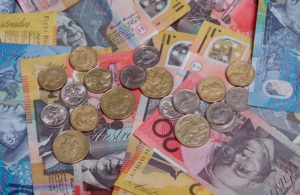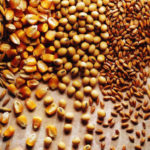 Australian dollar touched lows unseen in almost three weeks against its US rival on trading Thursday, following a report, which showed private capital expenditures in Australia shrank at the fastest pace in four years in the fourth quarter of 2013.
Australian dollar touched lows unseen in almost three weeks against its US rival on trading Thursday, following a report, which showed private capital expenditures in Australia shrank at the fastest pace in four years in the fourth quarter of 2013.
AUD/USD fell to a daily low at 0.8917 at 0:36 GMT, also the pairs lowest level since February 10th, after which consolidation followed at 0.8931, losing 0.41% for the day. Support was likely to be found at February 10th low, 0.8907, while resistance was to be encountered at February 26th high, 0.9026.
According to a report by the Bureau of Statistics in Australia, private capital expenditures in the country, an indicator for future economic activity, declined 5.2% in the final quarter of 2013 compared to the third quarter, or the most since September 2009.
“The headline number was disappointing and that’s clearly weighing on the Aussie,” said Divya Devesh, a foreign-exchange analyst at Standard Chartered Plc in Singapore, cited by Bloomberg. “The peak in mining investment is really very obvious now.”
This data came one day after Australian quarterly Building Activity Survey and Engineering Construction Survey revealed that construction work done declined 1.0% during the last quarter of 2013 compared to Q3, following a 2.7% increase in the preceding quarter. Analysts had projected that the indicator will show a 0.2% gain in Q4.
Meanwhile, Federal Reserve Chair Janet Yellen is expected to testify in front of the Senate Banking Committee today, after the testimony was postponed on February 13th due to a snow storm. Yellen said earlier in February that US economy has gained enough strength in order to withstand reduction of monetary stimulus, while a considerable change in outlook would urge the central bank to further slow its tapering.
The Fed underscored improving economic conditions for reducing the pace of its monthly bond purchases by 10 billion USD per month in January and February. Currently the central bank buys 65 billion USD in assets each month.
Durable goods orders in the United States probably decreased 1.5% in January compared to December, according to the median estimate by experts, after a month ago orders declined 4.2%. The official numbers are scheduled to be published at 13:30 GMT. Durable goods orders represent a major part of overall factory orders in the country. Better than projected figures will certainly heighten the appeal of the US dollar.
The number of initial jobless claims, on the other hand, an indicator for lay-offs in the United States, probably dropped by 1 000 to reach 335 000 during the week ended on February 22nd.
The Department of Commerce said on Wednesday that new single-family home sales in the country rose 9.6% in January compared to the prior month to reach the seasonally adjusted annualized level of 0.468 million, or the highest since July 2008. In December sales have been revised up to 0.427 million from 0.414 million previously. Analysts had projected that new home sales will slow down to 0.400 million last month.
These results were due to increased activity in the North-Eastern states (an increase by 73.7%), which reversed the tendency observed in the preceding months. Some experts suggested that the past slowdown was in part due to severe weather conditions. In southern and western parts of the United States sales of new homes also strengthened.
Elsewhere, the Aussie was losing ground against the euro, with EUR/AUD cross up 0.43% on a daily basis to trade at 1.5332 at 8:08 GMT. AUD/NZD plunged 0.77% to trade at 1.0703 at 8:10 GMT. The pair touched a session low at 1.0696 at 7:55 GMT, which has been the lowest point since January 30th.





